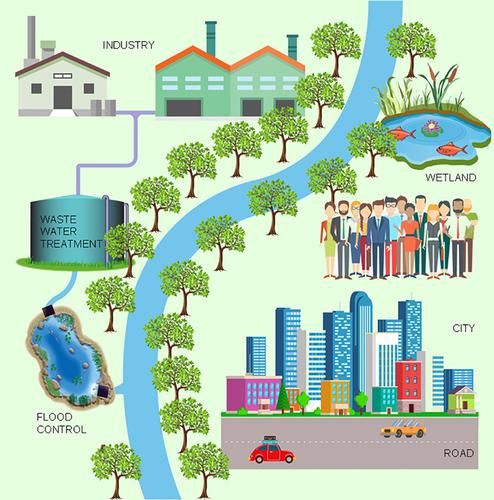当前位置:
X-MOL 学术
›
WIREs Water
›
论文详情
Our official English website, www.x-mol.net, welcomes your
feedback! (Note: you will need to create a separate account there.)
Healthy waterways and ecologically sustainable cities in Beijing‐Tianjin‐Hebei urban agglomeration (northern China): Challenges and future directions
WIREs Water ( IF 6.8 ) Pub Date : 2020-12-13 , DOI: 10.1002/wat2.1500 Giri Kattel 1, 2, 3, 4 , Jessica Reeves 4 , Andrew Western 1 , Wenjing Zhang 5 , Wei Jing 3 , Suzanne McGowan 6 , Lan Cuo 7 , Peter Scales 8 , Kim Dowling 9, 10 , Qiang He 11 , Lei Wang 7 , Samantha Capon 12 , Zenghui Pan 13 , Jiansheng Cui 2 , Lulu Zhang 2 , Luo Xiao 2 , Chun Liu 2 , Ke Zhang 14 , Chuanyu Gao 15 , Zaifeng Tian 16 , Yongding Liu 17
WIREs Water ( IF 6.8 ) Pub Date : 2020-12-13 , DOI: 10.1002/wat2.1500 Giri Kattel 1, 2, 3, 4 , Jessica Reeves 4 , Andrew Western 1 , Wenjing Zhang 5 , Wei Jing 3 , Suzanne McGowan 6 , Lan Cuo 7 , Peter Scales 8 , Kim Dowling 9, 10 , Qiang He 11 , Lei Wang 7 , Samantha Capon 12 , Zenghui Pan 13 , Jiansheng Cui 2 , Lulu Zhang 2 , Luo Xiao 2 , Chun Liu 2 , Ke Zhang 14 , Chuanyu Gao 15 , Zaifeng Tian 16 , Yongding Liu 17
Affiliation

|
The cities across the northern dry region of China are exposed to multiple sustainability challenges. Beijing‐Hebei‐Tianjin (BTH) urban agglomeration, for example, experiences severe water shortages due to rapidly expanding urban populations, industrial use, and irrigation‐intensive agriculture. Climate change has further threatened water resources security. Overuse of water resources to meet the demand of various water sectors has far‐reaching health and environmental implications including ecosystem sustainability. Surface water and groundwater pollution present public health risks. Despite the extraordinary policies and efforts being made and implemented by the Government of China, the BTH region currently lacks coordination among stakeholders leading to poor water governance. Consultation among scientists, engineers and stakeholders on regional water security issues is crucial and must be frequent and inclusive. An international symposium was held in Shijiazhuang in early November 2019 to identify some of the key water security challenges and scope of an idealized future eco‐city in the region by developing a sustainability framework. This work drew on experiences from across China and beyond. Scientists agree that integration of science, technology, and governance within an appropriate policy framework was particularly significant for combating the issue of water insecurity, including in the region's newly developed city, Xiong'an New Area. An emerging concept, “Healthy Waterways and Ecologically Sustainable Cities” which integrates social, ecological and hydrological systems and acts as an important pathway for sustainability in the 21st century was proposed in the symposium to tackle the problems in the region. This high level biophysical and cultural concept empowers development goals and promotes human health and wellbeing. The framework on healthy waterways and ecologically sustainable cities can overcome sustainability challenges by resolving water resource management issues in BTH in a holistic way. To implement the concept, we strongly recommend the utilization of evidence‐based scientific research and institutional cooperation including national and international collaborations to achieve the Healthy Waterways and Ecologically Sustainable Cities goal in the BTH in future.
更新日期:2021-02-05











































 京公网安备 11010802027423号
京公网安备 11010802027423号